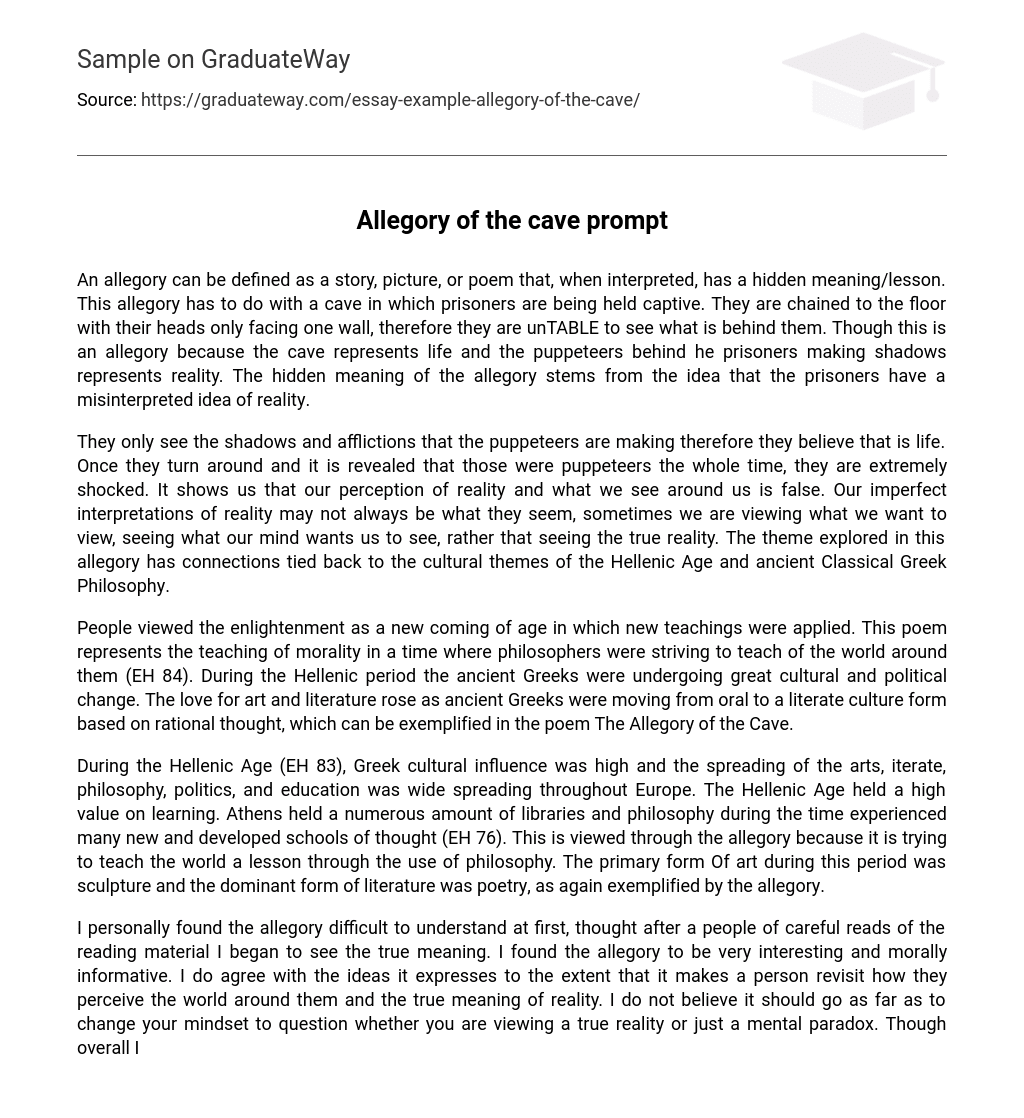An allegory refers to a story, picture, or poem that conveys a hidden meaning or lesson when interpreted. This particular allegory relates to a cave where prisoners are held captive, restrained by chains that keep them facing only one wall. As a result, they are unable to see what lies behind them. The cave represents life in this allegory, while the puppeteers positioned behind the prisoners, casting shadows, symbolize reality. The underlying message of the allegory arises from the notion that the prisoners possess a misconstrued perception of reality.
The individuals can only perceive the shadows and sufferings that the puppeteers manipulate, thus causing them to believe it is their reality. However, when they eventually face the puppeteers and discover the truth, they are profoundly astonished. This serves to demonstrate that our perception of reality and our surroundings is deceptive. Our flawed interpretations of reality may not always reflect the truth, as we are often inclined to see what our minds desire rather than what truly exists. This allegory delves into themes that resonate with the cultural ideals of the Hellenic Age and ancient Classical Greek Philosophy.
The enlightenment was seen by people as a new phase of growth where new teachings were implemented. This poem symbolizes the instruction of ethics during a time when philosophers were attempting to educate about the surrounding world (EH 84). In the Hellenic era, the ancient Greeks experienced significant cultural and political transformations. The appreciation for art and literature increased as the ancient Greeks transitioned from oral tradition to a literate culture founded on rational thinking, as showcased in the poem The Allegory of the Cave.
During the Hellenic Age (EH 83), Greek cultural influence was widespread and had a significant impact on various aspects such as arts, iteration, philosophy, politics, and education throughout Europe. This era placed great importance on learning, evident in the numerous libraries in Athens and the emergence of new schools of thought in philosophy (EH 76). The use of allegory in the text serves as a means to impart philosophical lessons to the world. Sculpture was the primary art form during this period, while poetry stood as the dominant form of literature, as seen once again through the allegory.
Initially, I struggled to comprehend the allegory, yet after multiple attentive reads of the material, its genuine significance became clear to me. I found the allegory captivating and morally enlightening. I concur with the concepts it presents to the extent that it provokes individuals to reassess their perception of the world and the authentic nature of reality. Nonetheless, I don’t believe it should prompt a complete shift in mindset towards questioning whether one is experiencing true reality or merely a cognitive dilemma. Overall, I believe I gained a great deal from this allegory and, despite its complexity, thoroughly enjoyed reading it.





